
Of Berk, again
O Berku, opet
Keywords: Edmund Burke;
Answer on article "Burke, democracy and nationalism" from "New serbian political thought".
More...
Keywords: Edmund Burke;
Answer on article "Burke, democracy and nationalism" from "New serbian political thought".
More...
Keywords: government; trade union; agreement; corruption;
More...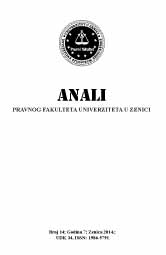

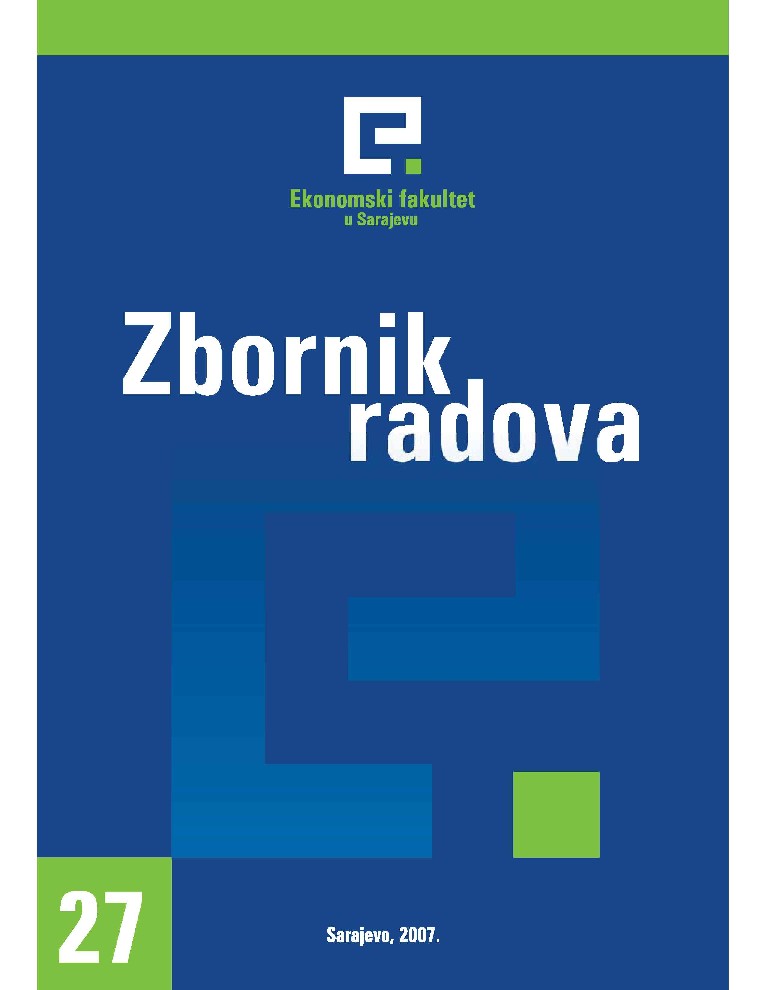
Keywords: contracts; contracts law; management; management agreement; operator; owner; management fee
This paper examines management agreements with the aim to determine their subject, legal nature and characteristics, rights and obligations of the contract parties, as well as advantages and disadvantages of implementing the particular contract compared to contracts that produce similar economic effects. For that purpose similarities and differences with licence and franchising agreements, contracts on technical assistance or advisory services and so called enterprising contracts known to some national laws are analysed, with the special focus on the domestic legal regulations. The main rights and obligations of contract parties are also analysed in detail and some sensitive negotiating aspects are pointed out. Results that ensued have helped to determine potential advantages and disadvantages of negotiating management agreements both for operators and for owners.
More...

Keywords: Serbia; EU; Transition
More...
Keywords: government; privatization; corruption;
More...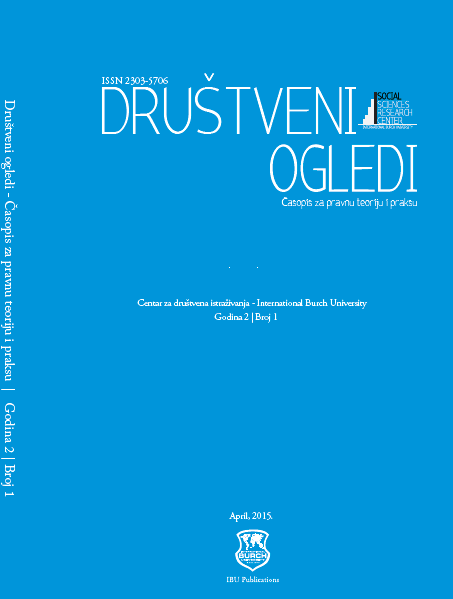
Keywords: Consumer protection; harmonization; Directive 2011/83/EU;
In the area of European contract law legal area most affected by the process of harmonization, and consequently the process of revision is the area of consumer protection. Because in the last few decades most intense legislative activity is manifested in the adoption of consumer directives. Transposing consumer directives member states have recognized the opportunity of their own economic development, since the improvement of trade is only possible if consumers enjoy the same rights no matter where in the territory of the European Union conclude contracts . This paper is focused on new horizontal instrument of European consumer law, Directive 2011/83/EU on consumer rights. Directive 2011/83/EU is a pioneering step towards building a coherent European consumer protection law, and in this light will be indicated the problem questions that arise in the process of harmonization of regulation Member States with Directive 2011/83/EU, keeping in mind the maximum harmonization clause. Also critically will be considered the process of harmonization of positive legislation with the Acquis in the field of consumer protection.
More...Keywords: life insurance; contract; pension funds;
Life insurance is a form of protection to the insured or the person close to him for accidents that may befall him. In this way one time to ensure the risk of death or loss or reduction capability of doing business. Life insurance eliminates the risk of both adverse consequences. Although long forbidden, because the argument that it is immoral to draw benefit from the death or injury, today's contract of life insurance is generally accepted in all jurisdictions. Life insurance serves the expansion of social insurance. In developed countries through the private life and pension insurance shall be correction system of pension insurance based on the principle of intergenerational solidarity, as pension funds all the harder to bear the burden of a large number of retirees. This paper analyzes the contract of life insurance in the law of Montenegro.
More...Keywords: Franchising; Franchising contract; UNIDROIT Guide for Franchising; Disclosure Model law; ICC standard contract;
Normative regulation of most important questions connected with franchising is high priority especially in international level. There are many problems connected with realisation of franchising transactions, especially the international ones. The process of normative regulation on international level is not so easy to perform because there are many questions differently resolved in national laws or not resolved at all. In this article the author is analysing more interesting and intriguing questions of franchising and the resolving of this problems offered by Guide of franchising, Disclosure Model law and the special contractual form (standard contract) offered by ICC.
More...Keywords: UNIDROIT; International Commercial Law; international private law; international trade law;
International Institute for the Unification of Private Law (UNIDROIT) is very important international inter-governmental organisation, with the main task to work on harmonisation and unification of private law in international boundaries. Following this task UNIDROIT has done some very significant results, especially in the field of international commercial law (one of the most important and most vivid part of the international private law). Many international convention, model laws, standard forms, guides were created by UNIDROIT. The most important areas and subjects of international harmonisation and unification, which has been treated by UNIDROIT, are international sale of goods, transport, liability, agencies, leasing, franchising, securities, international factoring ect. By creating the general principles of international commercial contracts UNIDROIT gave a great contribution to the process of harmonisation of international trade law. This article analyses some of the most interesting unifications in the field of international commercial law, done by UNIDROIT.
More...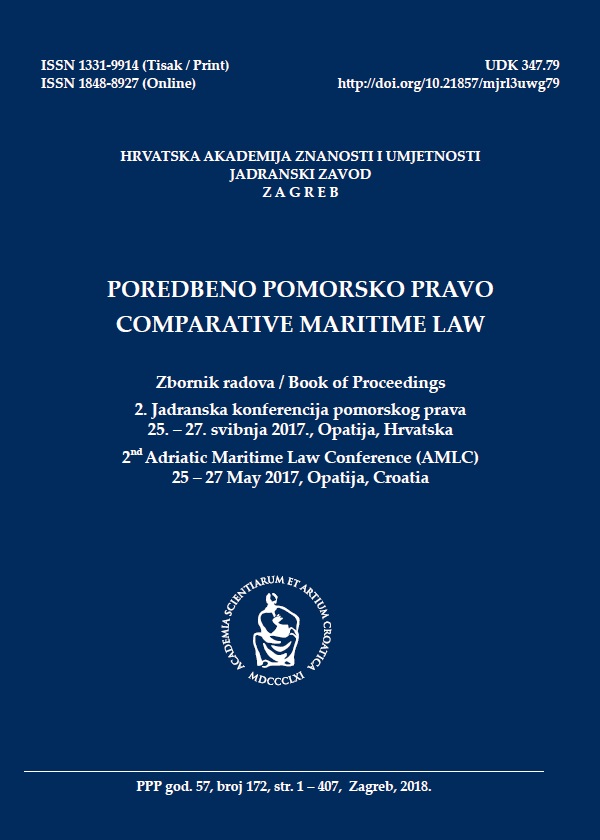
Keywords: marina;charter company;contract of berth;business cooperation agreement;comparative analysis;
This paper discusses the legal relations between the marina and the charter company arising from the contract of berth. The terms of the marina and the charter company are defined and their basic characteristics (classification, categorization, operation under concession conditions of the marina, conditions and the way of conducting chartering activities) are specified. Furthermore, the sources of legal relations between the marina and charter companies in Croatian business practice are analyzed (a business cooperation agreement, a settlement agreement on annual contractual obligations, a berth contract and a lease contract for a business space in the marina i.e. technical cooperation between marina and charter company). Apart from the presentation of the content of autonomous legal sources, the paper also refers to the content of the provisions of general conditions of the marina business. In addition to the solutions from business practices of the Croatian marinas, there are also solutions of legal relations between marinas and charter companies from business practices of several neighboring countries – Spain, Italy and Slovenia. Reference is made to the lack of statutory legal framework to regulate legal relations between marinas and charter companies. There is a need to standardize a legal relationship between the marina and the charter company related to the berth contract.
More...
Keywords: concession contract;project finance;maritime domain;securities;direct agreements;mortgage;
Concessions rise very sensitive political, economic and legal issues in many countries worldwide. Even defining the term ‘’concession’’ can be a complicated and not very straightforward exercise. OECD accepted definition of a concession as: “a grant to a private firm of the right to operate a defined infrastructure service and to receive revenues deriving from it. The concessionaire takes possession of the relevant assets (but ownership usually remains with the government) and uses them to provide the relevant product or service according to the terms of the contract.’’Croatian law defines concession generally as a right acquired pursuant to a concession contract subject to terms set out in the decision on concession (granted by a relevant authority) and, in respect of maritime domain, more specifically, as a right (of the Government authority) to exclude a part of maritime domain from the public use, either partly or completely, and to grant it to individuals or corporations for their commercial use subject to the relevant area planning. Buildings and other units erected on a maritime domain form its integral part.The law makes it clear that no property rights can be created on any part of maritime domain including buildings and units erected thereon. Projects developed on maritime domain often include large infrastructure projects,development of ports and marinas which require substantial financing. Banks that provide financing to such projects require organized and transparent concession laws and regulations, freedom of contract, legal protection of all parties involved (including a possibility of international arbitration). Projects of that kind are normally financed through project finance scheme which requires high level of capital and involves a substantial number of participants such as banks, contractors, investors, project managers, service suppliers, public sector, etc. Project finance scheme depends entirely on income generated by the project itself which income is the only source of repayment of financing and on ‘’the availability of reliable security instruments on the assets and cash flow of the concessionaire in favour of lenders,including ‘step-in’ rights and the possibility of government financial support or the guarantee by the contracting authority of proper fulfilment of its obligations. ’’The purpose of having security instruments (including assignment of concessionaire’s rights under the project contracts) for the concessionaire’s loan obligations, is that in the event of the concessionaire’s default the bank can ‘’step-in’’ and take full control over the project (instead of enforcing the securities) and make sure that the project is completed.That is why the project contracts, including concession contract in the first place, are of paramount importance for the banks. Normally, the security instruments on the concessionaire’s assets do not include mortgage on the project buildings and other units developed on the maritime domain. Croatian law does not allow for creation of a mortgage on maritime domain. That, however,is not an obstacle for the banks to provide financing for projects developed on maritime domain. From project finance banks’ point of view it is not necessary to change the law in order to allow creation of mortgage on maritime domain. Other security instruments created in favour of the banks providing project finance, including direct agreements, are normally sufficient for the banks to control the project.
More...
Keywords: Supplementary remuneration; Directive 2011/77/EU from September 27th 2011 about the changes in Directive 2006/116/EC about duration of the protection of the copyright and related rights; Performers;
In this paper, the author analyzes the concept, characteristics, significance and conditions for the existence of performer’s right to the supplementary remuneration. Then, is explaining the specific position of performers which causes the need for adopting special legal rules about their protection. The paper contains and the analysis of relevant acquis communautaire because the implementing of performer’s right to the supplementary remuneration is the result of obligation of Serbian law to align with the laws of the EU. We can also see the differences in protection of the performers in the US law, as the representatives of the Anglo-Saxon system, and the continental system. Then the solution of the Draft of the Law regarding the supplementary remuneration was critically analyzed. Finally, there is an analysis of the solution of the Directive 2011/77/EU with relevant articles of the Rome Convention and WIPO Performances and Phonograms Treaty.
More...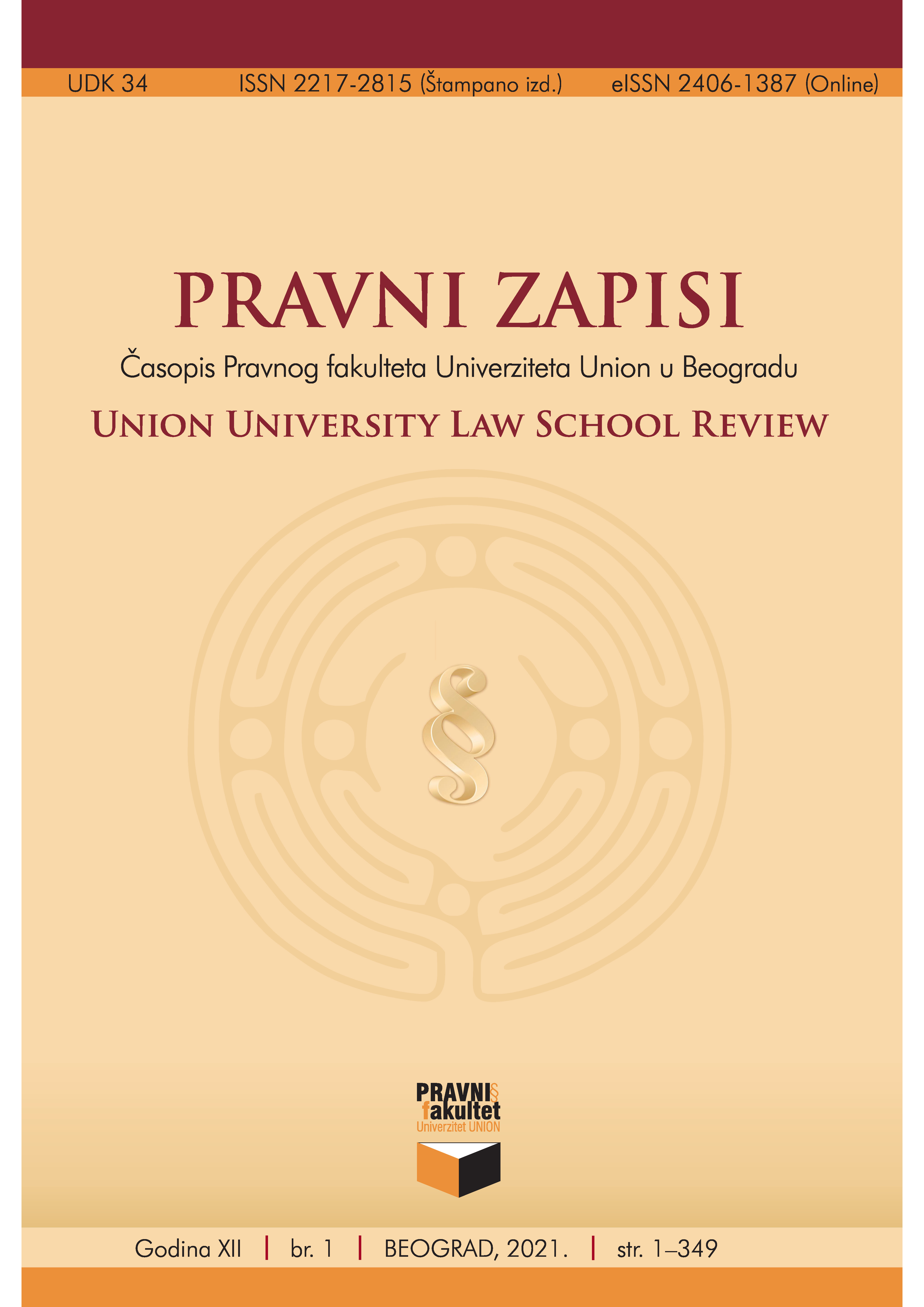
Keywords: disclosure duty; risk; precontractual duty; circumstances; insurance; breach; sanctions
In this paper, the author considers issues related to the pre-contractual obligation of the insurance policyholder to report to the insurer circumstances significant for the risk assessment. The aim of this paper is to compare the provisions of the The Law on Contract and Torts (LCT), proposals for changes in Serbian law envisaged in the Preliminary Draft of the Civil Code of the Republic of Serbia with solutions from comparative law and the provisions of the Principles of European Insurance Contract Law (PEICL). The analysis showed that it is necessary to update the solutions from the LCT and that the proposed changes, in terms of special rules regarding the obligation to report circumstances relevant to risk assessment to the insurer, are largely in line with modern solutions in comparative law and PEICL. The author points out that the proposed solutions can be supplemented and improved.
More...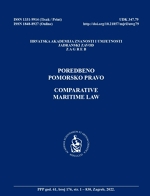
Keywords: rights of travellers; package travel contract; Package Travel Directive (EU) 2015/2302; Act on the Provision of Tourism Services; security for the refund of payment in cases of package organiser’s ins
The paper provides a critical analysis of the effectiveness of the EU and Croatian national regulations dealing with the protection of the rights of travellers – users of package travel arrangements – in a pandemic. Special attention is devoted to the following issues: a) timely refund to the traveller of the price paid in advance for the package that could not be performed due to the pandemic, and b) the traveller’s protection in case of the insolvency of the travel organiser. Certain proposals are made to improve the implementation of these regulations, so that some observed cases of reduced efficiency in the protection of travellers’ rights can be avoided in the future. In this context, the necessity and importance of the joint action of all involved stakeholders (organisers of package travel, insurance companies and the State) are emphasised.
More...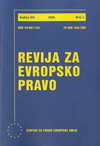
Keywords: Civil Code; Republic of Serbia
More...